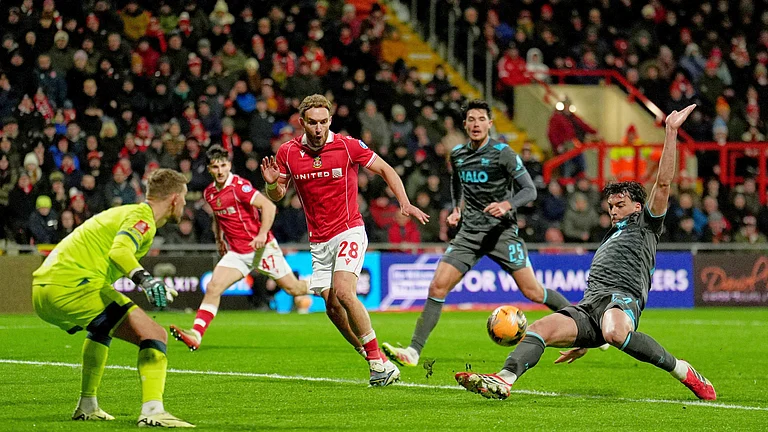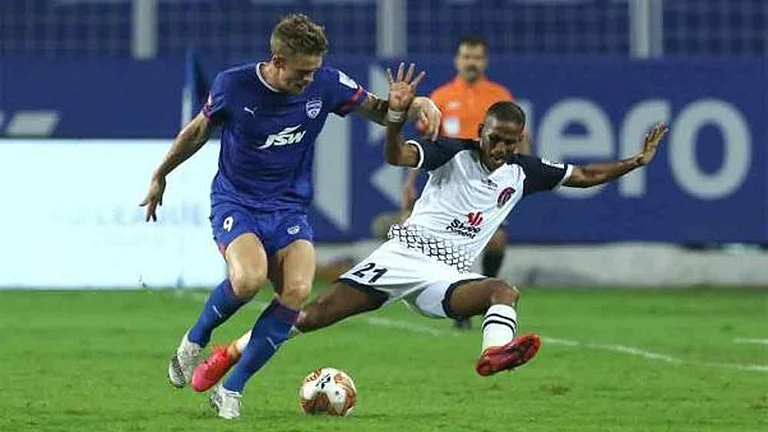On Tuesday, the Supreme Court granted permission to Ashish Mishra, the primary accused in the 2021 Lakhimpur Kheri violence that resulted in the loss of eight lives, to visit and stay in Delhi for the purpose of attending to his ailing mother and daughter. Back in January, the apex court had granted Mr. Mishra, who is the son of Minister of State in the Ministry of Home Affairs, Ajay Mishra Teni, an eight-week interim bail. However, during that period, he was prohibited from entering either the national capital or Uttar Pradesh.
In response to Mr. Mishra's plea for a modification of the conditions of his interim bail, a bench composed of Justices Surya Kant and Dipankar Datta has now allowed him to be in Delhi but has imposed certain restrictions. Specifically, he has been directed not to engage in any public functions or address the media with regard to the case. Reportedly, Mr. Mishra's mother is currently hospitalized at RML Hospital in New Delhi, and his daughter requires treatment for leg deformities.
The tragic events of October 3, 2021, saw eight individuals lose their lives in the district of Lakhimpur Kheri's Tikunia area during a violent outbreak that occurred during a farmers' protest against the visit of the then Uttar Pradesh Deputy Chief Minister, Keshav Prasad Maurya.
According to the UP Police FIR, an SUV in which Ashish Mishra was present ran over four farmers, leading to their deaths. Subsequently, the individual driving the SUV and two BJP workers were reportedly lynched by enraged farmers. The FIR also mentioned the unfortunate demise of a journalist during the violence. Ashish Mishra was taken into custody on October 9, 2021, following an extensive interrogation by the Special Investigation Team (SIT). On February 15, 2022, he was granted bail by the high court, but he had to surrender on April 24, 2022, as his bail was revoked by the Supreme Court.
In January of this year, a bench comprising Justices Surya Kant and JK Maheshwari granted Ashish Mishra an eight-week interim bail and asserted that the top court would oversee the proceedings of the case.


























